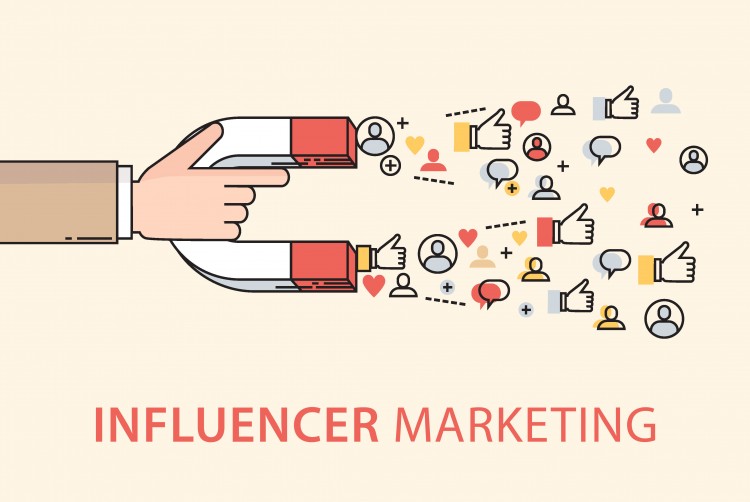In today’s digital landscape, influencer marketing has emerged as a transformative strategy for brands looking to connect with their target audiences. Unlike traditional advertising, influencer marketing thrives on authenticity, leveraging the trust and loyalty influencers have cultivated among their followers. By partnering with creators who align with your brand values, you can establish genuine connections that resonate deeply with consumers.
This article delves into the power of influencer marketing, exploring how it fosters authenticity, enhances brand visibility, and drives meaningful engagement.
1. Why Authenticity Matters in Influencer Marketing
In an era where consumers are increasingly skeptical of traditional advertising, authenticity is the cornerstone of effective influencer marketing. People trust influencers because they perceive them as relatable, transparent, and genuine.
Building Trust with Real Connections:

- Shared Values: Influencers who align with your brand’s mission convey a sense of integrity to their audience.
- Personal Storytelling: Creators often weave personal experiences into their content, making promotional messages more believable.
- Organic Engagement: Followers are more likely to engage with content that feels natural rather than forced.
For example, a fitness influencer endorsing a health supplement they genuinely use and love will drive more trust and conversions than a generic celebrity endorsement.
2. Choosing the Right Influencers for Your Brand
The success of an influencer marketing campaign hinges on selecting the right partners. Simply opting for influencers with large followings isn’t enough; alignment with your brand and audience is critical.

Factors to Consider:
- Relevance: Ensure the influencer’s niche aligns with your product or service.
- Engagement Rate: A smaller but highly engaged audience can be more impactful than a larger, passive one.
- Authenticity: Look for influencers with a history of honest and relatable content.
- Platform Fit: Choose platforms where your target demographic spends the most time, whether it’s Instagram, TikTok, or YouTube.
For instance, a beauty brand may find more value collaborating with a makeup artist on Instagram than with a general lifestyle blogger.
3. How Influencer Marketing Boosts Brand Awareness
One of the most significant advantages of influencer marketing is its ability to amplify brand visibility. Through creative and targeted campaigns, influencers can introduce your products to a broader audience.

Amplification Through Content:
- Sponsored Posts: Influencers can create content showcasing your product in a relatable context.
- Collaborations: Co-branded initiatives, such as product launches or giveaways, generate buzz and attract new followers.
- Social Proof: Seeing trusted influencers endorse a brand can inspire others to explore it.
Consider how influencer unboxing videos on YouTube create excitement and intrigue around new product launches, reaching thousands of potential customers in an authentic way.
4. The Impact on Consumer Behavior
Influencer marketing doesn’t just stop at awareness—it significantly influences purchasing decisions. Followers often look to influencers for recommendations, valuing their opinions as much as those of friends or family.

Driving Engagement and Sales:
- Call-to-Actions: Influencers often include links, discount codes, or exclusive offers, encouraging followers to take action.
- Reviews and Tutorials: Demonstrating how to use a product builds credibility and helps consumers make informed decisions.
- Social Listening: Monitoring comments and feedback on influencer content provides insights into consumer sentiment.
For example, a tech influencer reviewing the latest gadgets can drive immediate sales as viewers trust their expertise and recommendations.
5. Measuring the Success of Influencer Campaigns
To maximize the impact of your campaigns, it’s essential to track their performance and analyze results. Metrics provide valuable insights into what’s working and where adjustments may be needed.

Key Performance Indicators (KPIs):
- Reach and Impressions: Measure how many people saw your campaign.
- Engagement Rates: Track likes, shares, and comments to assess audience interaction.
- Conversion Metrics: Evaluate how many viewers clicked on links or made purchases.
- Sentiment Analysis: Monitor the tone of conversations sparked by the campaign.
Tools like Google Analytics or platform-specific dashboards can help you assess the ROI of your influencer partnerships, ensuring ongoing improvement.
Conclusion
Influencer marketing offers unparalleled opportunities for brands to connect with audiences authentically, drive engagement, and boost sales. By partnering with influencers who genuinely resonate with your brand’s values, you can create campaigns that feel personal and impactful.
Ready to learn more about maximizing your marketing strategies? Dive into related articles on our website, share your thoughts in the comments, or connect with us for expert guidance. Let’s collaborate to build your brand’s digital presence effectively!

Leave a Reply